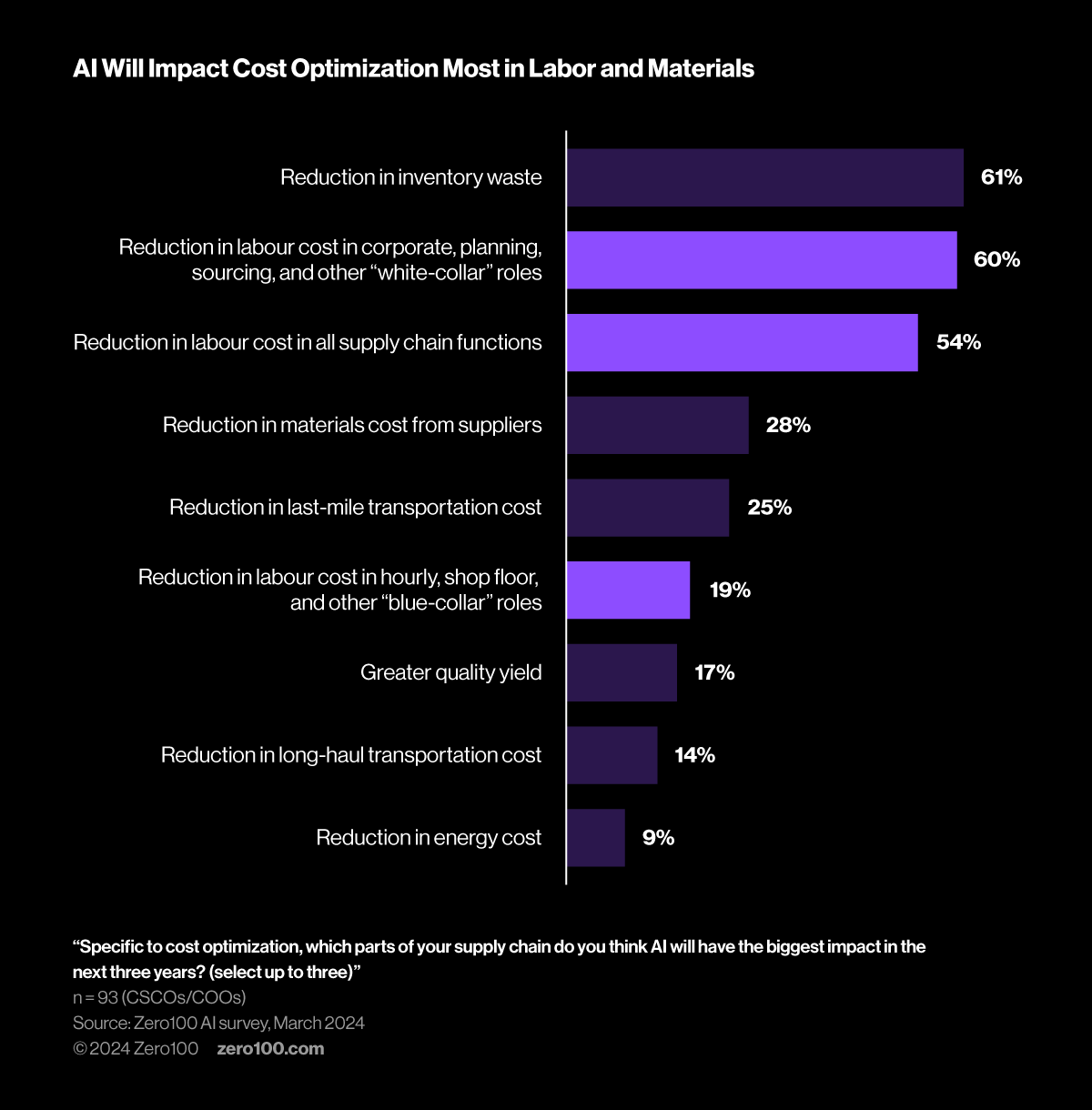

44% of Supply Chain Leaders Predict AI Will Cut Labor Costs. Is It Time to Level Up on Upskilling?
As AI transforms operations and optimizes costs, Zero100 research suggests that labor will be one of the most impacted areas in supply chain. Considering different ways to manage your workforce and approach talent 2030 will affect not only the efficiency of your organization but also your own baseline capabilities and employee sentiment.
Key Takeaways
-
1
In a recent survey of supply chain leaders, CSCO/COO respondents were asked to select the three areas where they expect AI to impact cost optimization the most. “White-collar” labor was the second highest response (44% of respondents).
-
2
46% of respondents selected at least one of the three options involving labor, predicting a decrease in cost across white-collar roles (60%), all supply chain functions (54%), and “blue-collar” roles (19%).
A March 2023 Goldman Sachs report estimated that 300 million jobs could be lost or diminished by AI – a shift that would resonate heavily in supply chain. Surveying 93 CSCOs and COOs, we found that 44% of respondents think labor will be the area most impacted by AI in terms of cost optimization, whether that’s across all supply chain functions, in “blue-collar” roles, or in corporate, planning, sourcing, and other “white-collar” roles.

As work environments and labor evolve, maximizing your ROI on tech solutions and talent involves embracing upskilling, not only benefiting employees – both existing staff and new hires, recruited with an eye on particular digital skills – but also those at the leadership and executive level.
One leader exemplifying this is PepsiCo. The company has been vocal about not only its digital transformation over the past five years but also its efforts to set the right foundation for success. Global CIO Seth Cohen said, “For us, cloud engineering and IoT capabilities are vital enablers for our digitization journey. Given PepsiCo’s scale, we need in-house expertise to handle these areas effectively. We aim to mature these skill sets within the organization and have our employees understand the specific context and requirements of PepsiCo’s operations.”
How do they achieve this? By investing in extensive learning and development programs to upskill their staff – including resources on AI/ML – which are part of their Global Learning Center of Expertise. This mutually beneficial system keeps employees happy (82% of employees feel the company is doing what it should to retain them and 65% would not leave if offered a job for more money) and allows PepsiCo to build deep domain expertise in-house.
Here are our recommendations to help you get started on your upskilling journey:
- Codependency: Identify and cultivate the “machine whisperers” already in your organization who demonstrate the inclination and aptitude to assist with the AI transition, including piloting automation tech, documenting the ongoing knowledge transfer, and identifying emerging skill gaps.
- Incrementalism: Define new metrics that challenge conventional measures of productivity to reward teams that excel at minimizing operational disruptions, embracing continual change management, and rapidly transitioning staff through new certification programs.
- Transparency: Write a playbook for disseminating the AI roadmap by role and function based on the criticality of team members in implementing, testing, optimizing, scaling, and maintaining the go-forward strategy.
- Continuing Education: Finally, review existing relations with online learning portals, industry standards and certification councils, and higher education institutions, then identify the gaps and act on them to provide a clear path forward to support upskilling initiatives.
To see a different data cut or to dig deeper into this topic, reach out to our Head of Research Analytics, Cody Stack, at Cody.Stack@zero100.com.
Methodology
Zero100’s proprietary data and analytics are a combined effort between our data scientists and research analysts. We provide data-first insights matched with our own research-backed points of view and bring this analysis to life via real-world case examples being led by supply chain practitioners today.
For this study, we looked at 4.16 million LinkedIn job posts from 241 B2B and B2C companies. Our analysis categorizes listings based on mentions of specific digital skills within job titles and descriptions. We also fielded a survey to 93 CSCOs and COOs. Respondents include supply chain professionals from companies with an average company revenue of over $1 billion from across all functions and all regions.